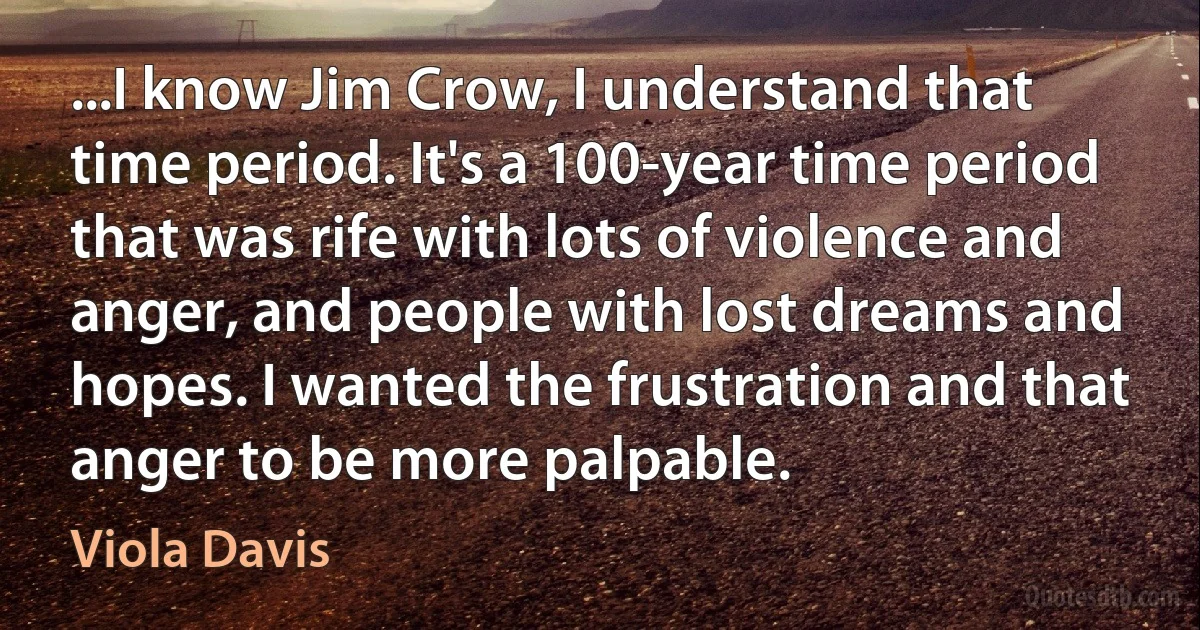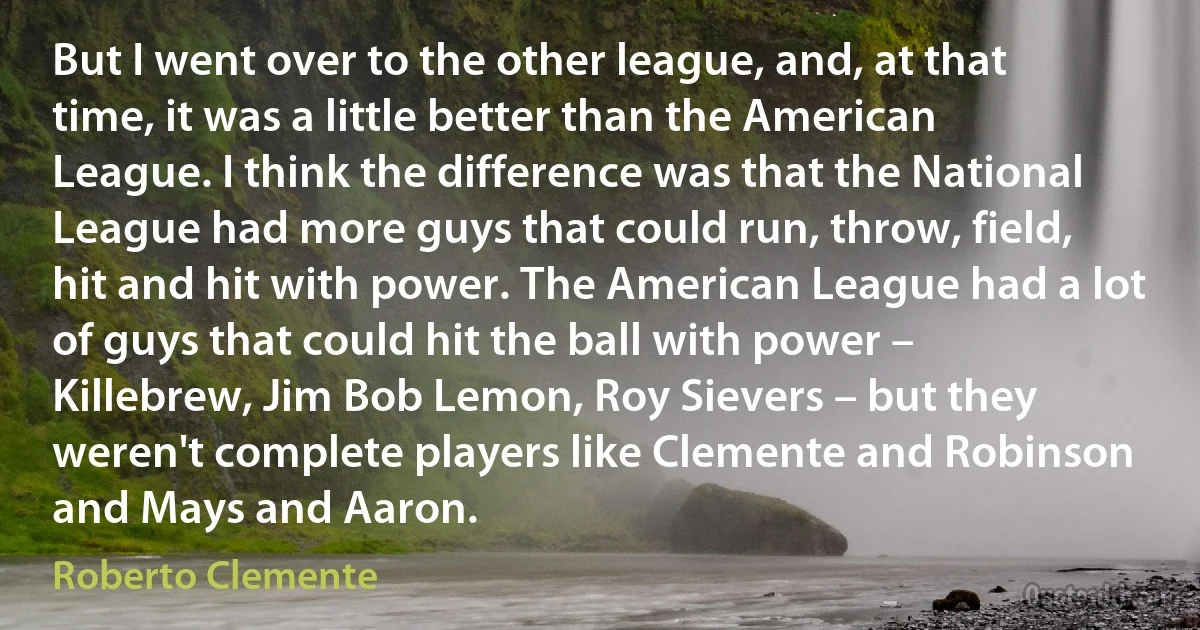Jim Quotes - page 11
Racial segregation as a way of life did not come about as a natural result of hatred between the races immediately after the Civil War. There were no laws segregating the races then. And as the noted historian, C. Vann Woodward, in his book, The Strange Career of Jim Crow, clearly points out, the segregation of the races was really a political stratagem employed by the emerging Bourbon interests in the South to keep the southern masses divided and southern labor the cheapest in the land. You see, it was a simple thing to keep the poor white masses working for near-starvation wages in the years that followed the Civil War.

Martin Luther King Jr.
If it may be said of the slavery era that the white man took the world and gave the Negro Jesus, then it may be said of the Reconstruction era that the southern aristocracy took the world and gave the poor white man Jim Crow. He gave him Jim Crow. And when his wrinkled stomach cried out for the food that his empty pockets could not provide, he ate Jim Crow, a psychological bird that told him that no matter how bad off he was, at least he was a white man, better than the black man.

Martin Luther King Jr.
Removing the flag from this state's capitol would not be an act of political correctness; it would not be an insult to the valor of Confederate soldiers. It would simply be an acknowledgment that the cause for which they fought -- the cause of slavery -- was wrong -- the imposition of Jim Crow after the Civil War, the resistance to civil rights for all people was wrong. It would be one step in an honest accounting of America's history; a modest but meaningful balm for so many unhealed wounds. It would be an expression of the amazing changes that have transformed this state and this country for the better, because of the work of so many people of goodwill, people of all races striving to form a more perfect union. By taking down that flag, we express God's grace.

Barack Obama
First, weaken the black family, but don't blame it on individual choices. You have to preach that today's weak black family is a legacy of slavery, Jim Crow and racism. The truth is that black female-headed households were just 18 percent of households in 1950, as opposed to about 68 percent today. In fact, from 1890 to 1940, the black marriage rate was slightly higher than that of whites... In New York City, in 1925, 85 percent of black households were two-parent households... Disgustingly, black politicians, civil rights leaders, liberals and the president are talking nonsense about "having a conversation about race." That's beyond useless. Tell me how a conversation with white people is going to stop black predators from preying on blacks. How is such a conversation going to eliminate the 75 percent illegitimacy rate? What will such a conversation do about the breakdown of the black family... Only black people can solve our problems.

Walter E. Williams
Hell no,” Jim said when they were alone in the suite. "Absolutely no. No fucking way, no. There have got to be a billion different ways to say no, and I'd still have to cycle through them a couple times to really express the depth of no on this one. Clarissa Mao? On the Roci? How is that anything but a massive load of let's-not-do-that?

Daniel Abraham
More than his brothers, he understood the legislative dance; the liberal lion would cut the best deal possible for his cause. To achieve this, he'd work with anyone: Republicans John McCain, Olympia Snowe, Orrin Hatch - all likely to be featured in Gabler's second volume; in the 60s and 70s with the Southern bulls like Jim Eastland and Richard Russell.

Ted Kennedy
They say state-of-the-art special effects can create the illusion of anything on the screen, and now we have proof: It's possible for the Jim Henson folks and Industrial Light and Magic to put their heads together and come up with the most repulsive single creature in the history of special effects, and I am not forgetting the Chucky doll or the desert intestine from Star wars. To see the snowman is to dislike the snowman. It doesn't look like a snowman, anyway.

Roger Ebert
I think The Razor's Edge is a pretty good movie. But at the time, it was just as reviled as any other comedian doing a serious thing now. Like The Majestic [with Jim Carrey], movies where comedians go straight, people don't like them.
It angers people, like you're taking something away from them. That's the response I got. I thought, "Well, aren't we all bigger than that?" I wasn't shocked by it, but I thought that the professional critics would be able to say, "OK, we shouldn't rule this out, because the guy normally does other stuff."
Unless it's really despicable, then you have to just jump with both feet on the neck.

Bill Murray
16) There is no cause so right that one cannot find a fool following it.
To prove a point, one may seek out a foolish Socialist, thirteenth century Liberal, Scientologist, High Frontier advocate, Mensa member, science fiction fan, Jim Bakker acolyte, Christian, witch, or fanatical devotee of Special Interest Lib. It doesn't really reflect on the cause itself. Ad hominem argument saves time, but it's still a fallacy.

Larry Niven
One of the things we deal with as a theme is legacy-thinking about the future of oneself, the future of one's family, one's culture. How they're going to survive, and how their survival will be viewed by those in the future. In doing so, I had to really think about my past and the past of my people. I'm a member of the African diaspora, and what we have experienced, I had to tap into and use that...I quickly understood that me growing up in Texas, my grandparents living through Jim Crow America, my parents living through Jim Crow America, to a degree, my aunts and uncles; those are all very different experiences. There's a difference in being raised somebody who's gone through that and actually being a person who dealt with that....

Jonathan Majors
I personally think it was valuable. I think maybe it causes the American people to take pause and say, wait a minute, if we have someone who is as selfless and as committed as Jim Mattis resigns his position, walking away from all the responsibility he feels for every service member in our forces, and he does so in a public way like that, we ought to stop and say, OK, why did he do it? We ought to ask what kind of commander in chief he had, that Jim Mattis [had], that, you know, the good Marine, felt he had to walk away.

Stanley A. McChrystal
Nevertheless, as readers familiar with Mr. Lerner's previous works know, the range of his interests is amazing. In this book he comments on such diverse matters as President Truman's handling of the 1946 railroad strike..., Charlie Chaplin's superb ability as a mime, H. G. Wells's imaginative writing, Palestine, the cold war, Trotsky and Stalin, the evil of the Ku Klux Klan, Jim Crowism, the 1948 political conventions, and the management of the Brooklyn Dodgers. In all of these and the many other pieces which make up the book the Enemy is always Status Quo.

Max Lerner
I think he was the first man I met who was not afraid of me in some way. We were very similar, like brother and sister. Our spirits are similar. We were the same height and the same age, almost ... He was well read and he introduced me to William Blake and also the English Romantic poets who came after him. Jim liked Shelley. I preferred Coleridge. In fact, he is my favoured poet of all time. Did you know they were all drug addicts? Coleridge was addicted to opium. It is better to be addicted to opium than to be addicted to money.

Nico
But saying that White power and privilege is at an all-time high is just ridiculous. Higher than a century ago, the year of the Tulsa Race Massacre? Higher than the years when the KKK rode unchecked and Jim Crow went unchallenged? Higher than the 1960s when The Supremes and Willie Mays still couldn't stay at the same hotel as the White people they were working with? Higher than during slavery?

Bill Maher
The key books about object-oriented graphical modeling languages appeared between 1988 and 1992. Leading figures included Grady Booch [Booch,OOAD]; Peter Coad [Coad, OOA], [Coad, OOD]; Ivar Jacobson (Objectory) [Jacobson, OOSE]; Jim Odell [Odell]; Jim Rumbaugh (OMT) [Rumbaugh, insights], [Rumbaugh, OMT]; Sally Shlaer and Steve Mellor [Shlaer and Mellor, data], [Shlaer and Mellor, states] ; and Rebecca Wirfs-Brock (Responsibility Driven Design) [Wirfs-Brock].

Martin Fowler
There is something strangely inconsistent about a nation and a press that would praise you when you say, "Be nonviolent toward Jim Clark," but will curse and damn you when you say, "Be nonviolent toward little brown Vietnamese children." There is something wrong with that press.

Martin Luther King Jr.



